Are you searching detailed about Student Visa for the Philippines? then you are on the right article. The Philippines, a newly industrialized nation and rising Asian market welcomes overseas students pursuing higher education. In addition to being a well-liked travel destination due to its bright, tropical beaches and lovely coastline, the Philippines is home to a large number of students from a variety of cultural backgrounds.
Table of Contents
The intriguing fusion of Malay, American, Spanish, and Islamic influences on Filipino culture is experienced by international students. Most significantly, it is regarded as having one of Asia’s top educational systems, particularly for postsecondary education.
In this blog, we have curated information related to the details of student visa for the Philippines.
Key Takeaways:
- There are various advantages of studying in the Philippines such as access to high-quality education, exposure to diverse cultures, and more.
- To be eligible for a Student visa in the Phillippines, students should be financially stable and have the required documents.
- The documents required for a student visa for the Philippines include a passport, application form, photographs, etc.
- Students have to pay about $160 for a student visa to the Philippines.
- The processing time for a Philippines student visa is about 3-5 weeks on average.
- International students can apply to top universities in the Philippines such as the University of Santo Tomas, Mapua University, etc.
What are the advantages of receiving the Philippines student visa?
International students can benefit from several advantages in terms of academic opportunities and personal development by obtaining a Philippines student visa. Here are a few possible benefits:
1. Access to High-Quality Education:
The Philippines is well known for offering high-quality education, particularly in fields like business, engineering, and medicine. A student visa allows foreigners to enroll in a variety of programs at universities, colleges, and technical schools.
2. Exposure to Diverse Culture:
Students have the chance to fully immerse themselves in a new and diverse culture when studying abroad. It can improve their cross-cultural communication abilities and help them see the world from a wider viewpoint.
3. Learning a Language:
English and Filipino are both recognized as official languages in the bilingual nation of the Philippines. Foreign students can study a new language and advance their English language skills at the same time.
4. Networking Possibilities:
Students studying in the Philippines may be able to establish connections with experts in the sector of their choice. Future employment chances and beneficial contacts may result from this.
5. Personal Development:
Studying overseas can be a transformative experience that promotes personal development. It pushes students to venture outside of their comfort zones and adjust to new situations, demanding them to become more self-reliant and autonomous.
Eligibility criteria for Student visa for Phillippines:
Students must fulfill certain academic and financial standards to qualify for a Philippines student visa.
These prerequisites guarantee that the student has the financial means to pursue their education and the academic credentials needed to be successful in the program of their choice.
The following are the precise educational and financial prerequisites for students wishing to apply for a student visa to the Philippines:
1. Academic eligibility:
- a filled-out application for the university or institution of choice.
- an acceptance letter from the school confirming the student’s enrollment in a full-time course of study.
- a formal transcript of the pupil’s education.
- a good standing certificate from the prior college or university attended by the student.
- a passport that is currently valid for at least six months.
2. Financial eligibility:
- Documentation such as bank statements or scholarship award letters attesting to the student’s ability to pay for their education and living expenses while they are studying in the Philippines.
- A declaration from the student or their sponsor detailing how they pay for their living expenses and educational costs.
- A bank certification letter from the sponsor or the student attesting to the fact that they have enough money set out for other costs like housing and tuition.
- A notarized declaration of support from the sponsor promising to provide financial assistance to the student for the duration of their stay in the Philippines.
What are the documents required for a Student Visa for the Philippines?
A collection of documents must be submitted by the applicant to the Philippines Embassy or Consulate in their home country to apply for a student visa. The necessary files are as follows:
- Application form: The student visa application form must be properly completed, printed, and signed by the applicant. If the student is a minor, the form’s parent or guardian may sign it.
- Passport: After the applicant’s stay in the Philippines, their passport must be valid for at least six months. Presenting photocopies of the passport’s data page, issue date, and expiration date is also required.
- Photographs: Two passport-sized colored pictures taken no more than six months ago.
- National Identity Card and Resident Permit/Visa Copy: A resident permit card is required if the applicant’s citizenship and place of residence are different.
- Birth Certificate: The Philippines Embassy has validated and certified both the original and photocopy of the birth certificate.
- Affidavit of Support: A copy of the original signed by the parent(s) or legal guardian, as well as an original, must be verified at the Philippine Embassy.
- Two photocopies of the parent or legal guardian’s passport data page: Two copies of the parent or guardian’s passport data page.
- Transcript of Records: A photocopy and an original, verified at the Philippine Embassy, of the transcript of records.
- Certificate of Good Moral Character: An original and a photocopy of the certificate, which has been verified by the Philippines Embassy.
- Police Certificate: A photocopy and original of the certificate of police, verified by the Philippine Embassy.
- Medical Examination Reports: A photocopy and the original of the reports, along with the X-ray film that was sealed in an envelope that had been verified by the Philippine Embassy.
- Personal History Statement Forms: Completed forms from the concerned school regarding your personal history.
- Entire List of Potential Contacts for Students: A detailed list of potential contacts for the student in the Philippines, both in original and copied form.
- Diploma: Applicants who plan to pursue graduate courses must have a diploma. That needs to be verified at the Philippine Embassy.
What is the application process for a Philippines Student Visa?
To apply for a student visa to the Philippines, students can apply at the Embassy or Consulate of the Philippines nearest to them. The application process is:
- Obtain admission to a Filipino school recognized by the Immigration Bureau
- The Filipino Commission on Higher Education (CHED) receives an application from the applicant’s school requesting approval so they can study in the Philippines.
- The Immigration Bureau is notified of the decision by the Commission on Higher Education.
- The Department of Foreign Affairs (DFA) receives notification from the Bureau of Immigration if your application is granted, and this notification is then forwarded to the Consulate Embassy where you will submit your application for a student visa to the Philippines.
What is the cost of a Student visa for the Philippines?
Every country has a different cost for student visas. For example, the cost of a student visa in Austria is 120 Euros. Similarly, the cost of a Student visa for the Philippines is around $160 on average for most international students.
What is the processing time of a Student Visa for the Philippines?
The processing time of a Philippines student visa is around 3-5 weeks. This could vary depending on the university being applied to, the time of application, and more.
What is the duration of the Student Visa for the Philippines?
The student visa for the Philippines is valid for up to 12 months following which students have to apply for an extension.
Who can apply for an extension of a student visa in the Philippines?
Foreign nationals who are holders of an existing Student Visa and wish to continue their studies in the Philippines can apply for an extension for a student visa.
It costs around:
| ITEM DESCRIPTION | AMOUNT |
| Extension Fee | 2,000.00 |
| Legal Research Fee (LRF) for each immigration fee except Head Tax and Fines | 20.00 |
| Certificate Fee | 500.00 |
| Express Fee (Certification) | 500.00 |
| Express Fee (Filing) | 500.00 |
| Express Fee (I-Card Processing) | 500.00 |
| TOTAL | PHP 4,020.00 |
What is the cost of studying in Philippines?
When considering our possibilities for studying in the Philippines, the first and most important question that comes to mind is how much it will cost to pursue higher education.
Even though studying in a country in Southeast Asia is less expensive than in its neighbors, the following table shows the typical costs you may encounter:
| Living Expenses | $4,000-6,000 per year. |
| Tuition Fees | The total cost of tuition can vary depending on the course, university, city, and degree program level. The average cost to study in the Philippines is between $1,000 and $2,500. |
| Accommodation | On average, a student needs to spend close to around 2000 pesos/ $50 for a decent dormitory. |
What are the top universities in the Philippines for international students?
In the Philippines, several colleges accept students from all over the world and provide top-notch instruction and a comfortable learning environment.
The majority of Philippine colleges hold licenses, charters, or accreditations from the relevant Philippine government agencies. These universities include:
- Ateneo de Manila University
- University of Santo Tomas
- University of the Philippines Diliman
- Polytechnic University of the Philippines
- Mapua University
- Silliman University
- De La Salle Lipa
- University of San Carlos
- Colegio de San Juan de Letrán
- Ateneo de Davao University
- Saint Louis University, Baguio City
Frequently Asked Questions
1. How can I get a student visa in the Philippines?
The Bureau of Immigration in Manila is where the application can be submitted. A prospective student must make sure that all necessary paperwork, including academic records supplied by foreign institutions, has been verified by the Philippine Embassy or Consulate in the area where the school is located.
2. Can I work on a student visa in the Philippines?
To support themselves and any dependents, holders of a study visa are permitted to live and work in the Philippines for the duration of their program.
3. How much bank balance is required for a Philippines visa?
About $1000 in bank funds are required for the Philippines visa. The minimum amount that the bank should have is $1000, no less. This sum has been decided upon by the Philippine Embassy. To apply for a tourist visa to the Philippines, you need to have a minimum of $1000 in your bank account.
4. Is the Philippines a good place to study?
A wide range of students are choosing to study in the Philippines because of its excellent programs, affordable costs, friendly people, and culture.
Conclusion:
In addition to being a well-liked travel destination due to its bright, tropical beaches and lovely coastline, the Philippines is home to a large number of students from a variety of cultural backgrounds.
Students who are at least eighteen (18) years old and want to temporarily enter the Philippines to study at a university, seminary, academy, college, or school that has been approved for international students by the Commissioner of Immigration may apply for a Philippines Student Visa.
This visa is only given for educational purposes and permits students to enroll in courses beyond high school.



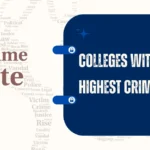




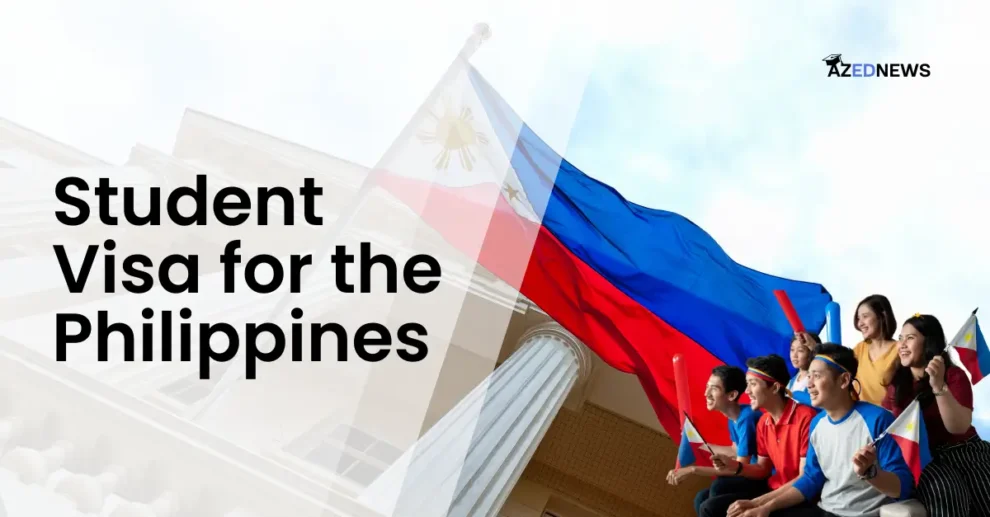
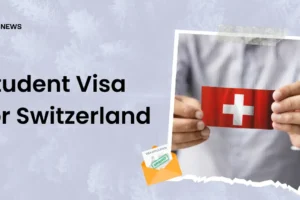
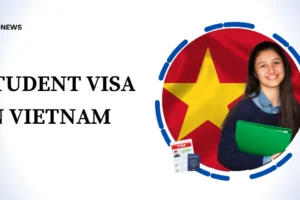
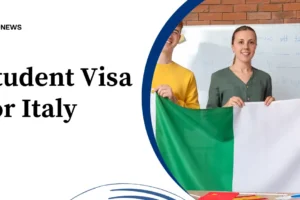










Add Comment